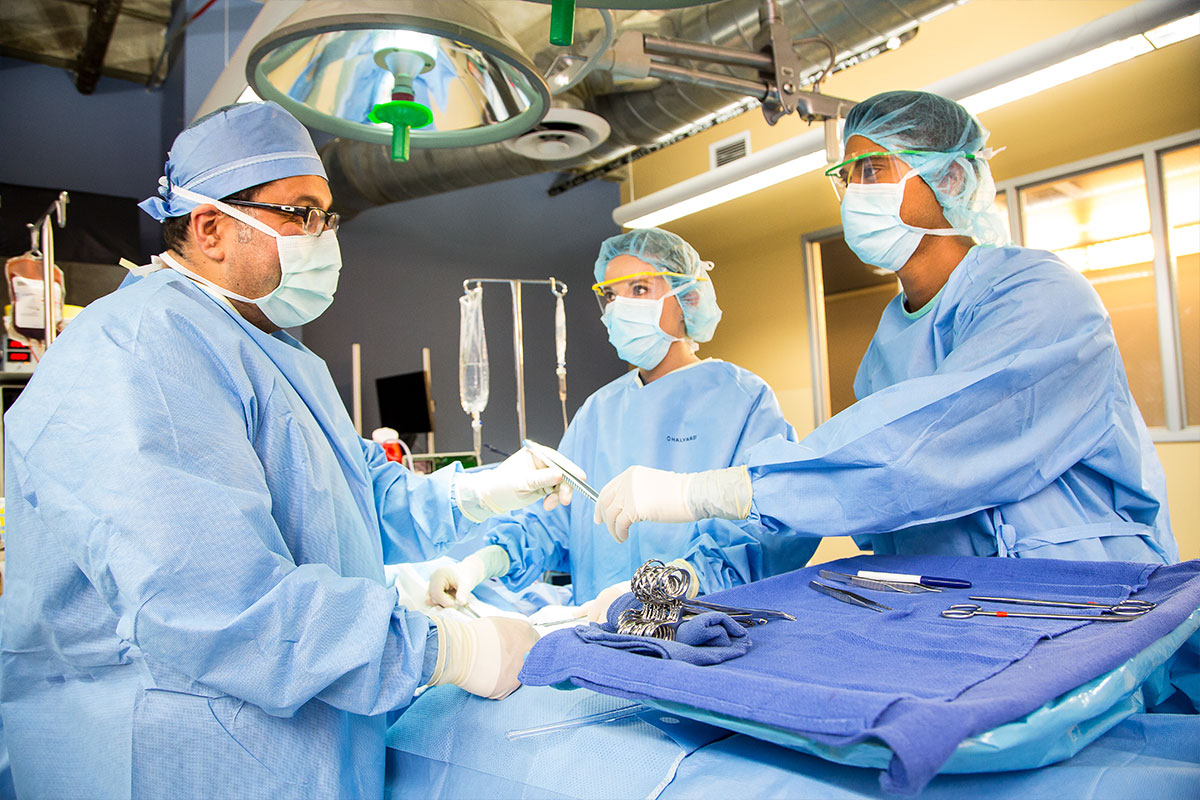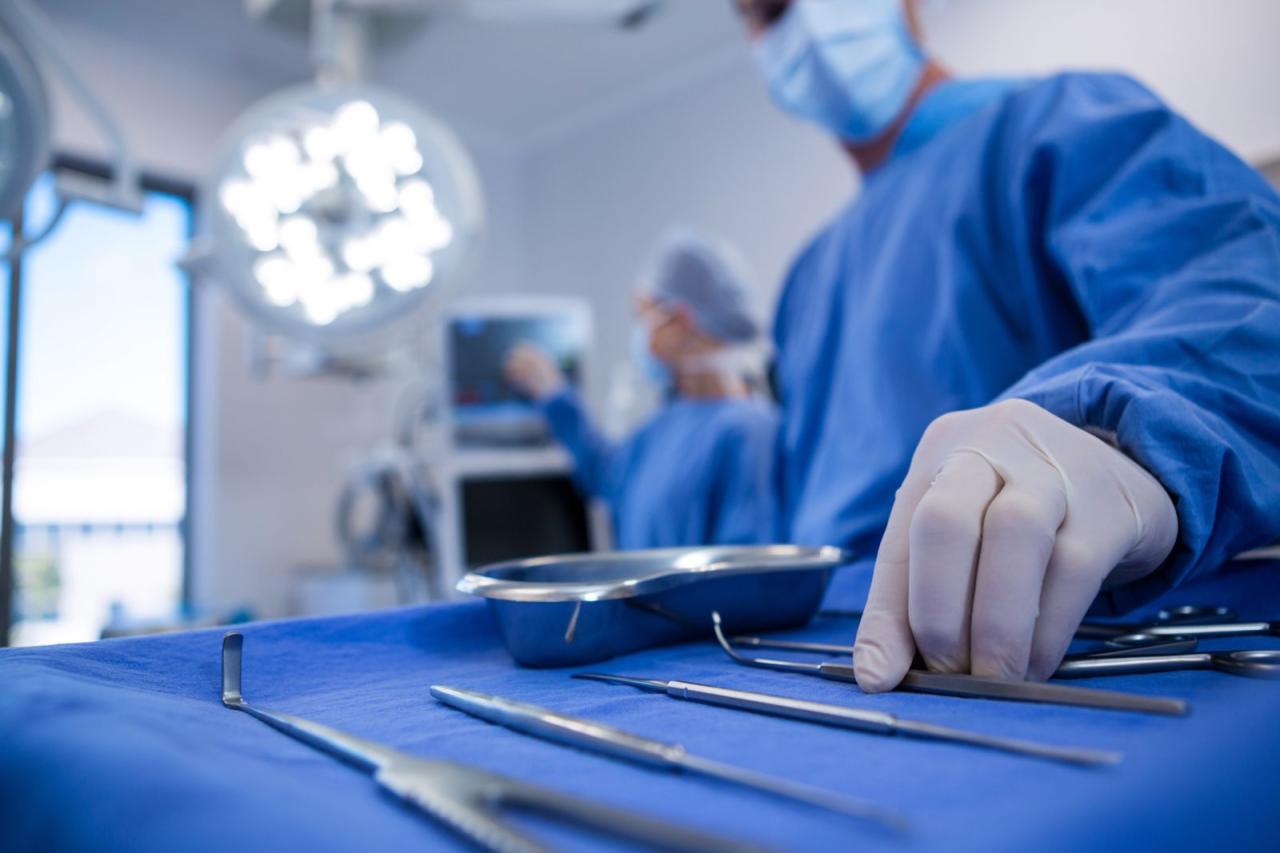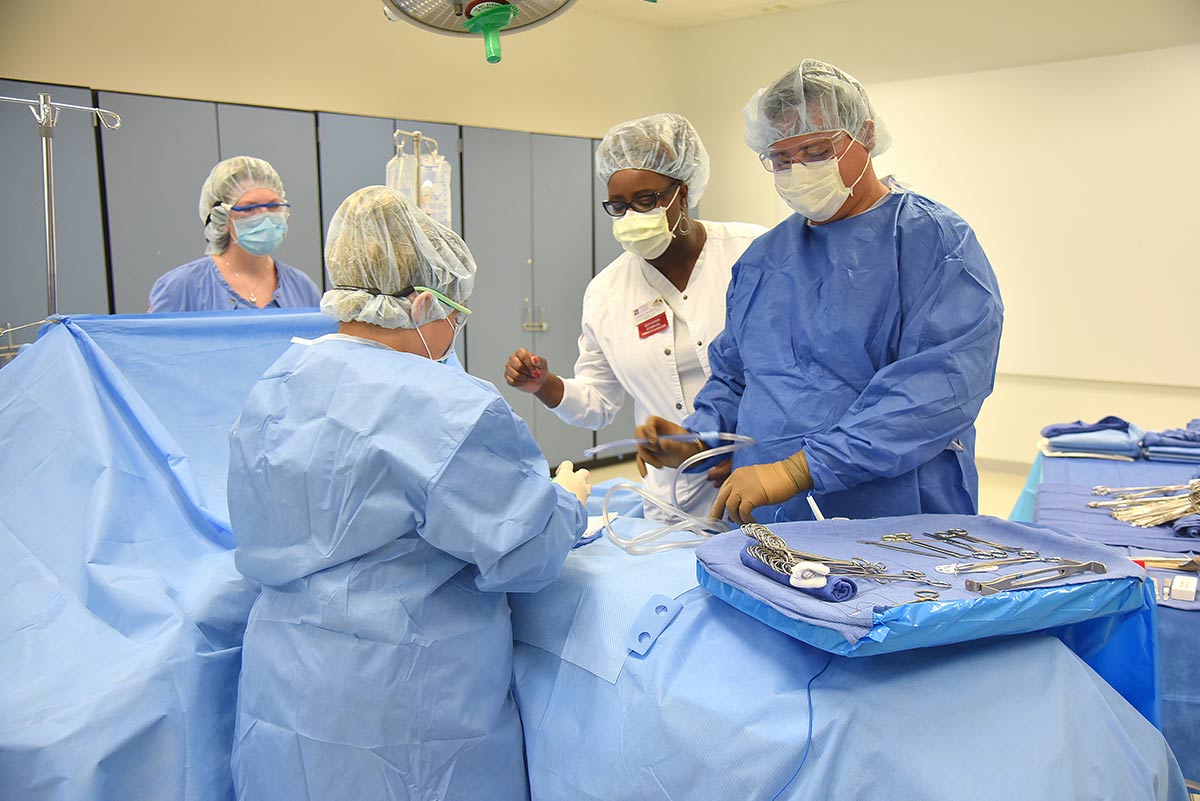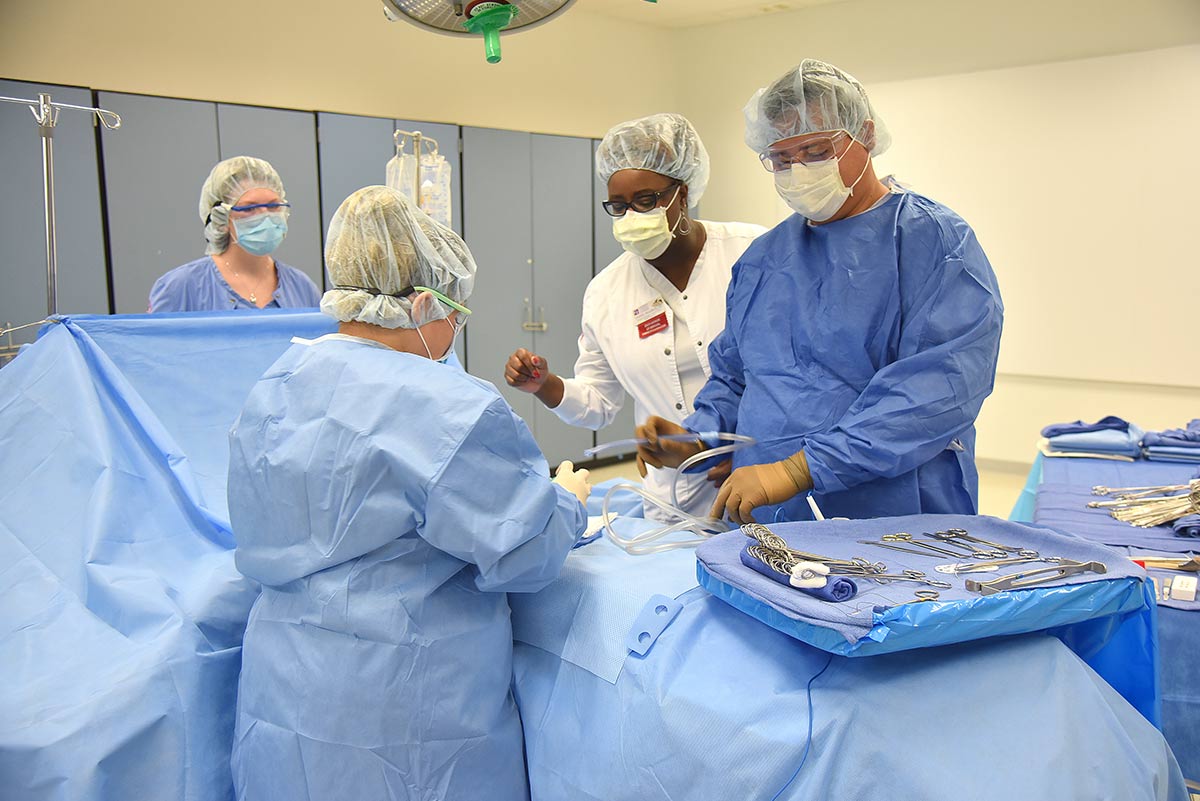Accredited surgical tech programs near me with clinical rotations offer a fantastic pathway to a rewarding career. Finding the right program requires careful consideration of several factors, including accreditation status, location, curriculum, and clinical rotation opportunities. This guide will walk you through the process of identifying and selecting a program that best suits your needs and career aspirations, equipping you with the knowledge and skills to excel in this dynamic field.
Finding accredited surgical tech programs near you with clinical rotations is key to a successful career. It’s amazing to think about the global supply chain involved, even in something like surgical instruments; check out this article on how China is the manufacturing superpower | Hacker News for a fascinating perspective. Understanding that global manufacturing context helps appreciate the importance of choosing a high-quality program for your surgical tech training, one that offers solid hands-on experience.
We’ll cover everything from understanding accreditation standards to navigating the application process and beyond.
Choosing a surgical technology program is a big decision. Understanding the nuances of accreditation, the importance of hands-on clinical experience, and the career prospects after graduation are all crucial steps in making an informed choice. This guide will provide you with the information you need to make the right decision for your future.
Accredited Surgical Tech Programs
Choosing the right surgical technology program is a crucial step towards a rewarding career. This guide will help you navigate the process of finding and selecting an accredited program near you, focusing on curriculum, clinical rotations, accreditation bodies, and post-graduation opportunities.
Introduction to Accredited Surgical Technology Programs, Accredited surgical tech programs near me with clinical rotations
An accredited surgical technology program is an educational pathway that meets specific quality standards set by recognized accrediting agencies. Accreditation ensures the program provides a comprehensive and rigorous education, preparing graduates for successful careers as surgical technologists.
Accreditation is vital because it signifies that a program adheres to nationally recognized standards for curriculum, instruction, and clinical experiences. Graduates from accredited programs often have a higher likelihood of passing certification exams and securing employment.
A typical accredited surgical technology program curriculum includes classroom instruction and hands-on laboratory experiences covering anatomy and physiology, surgical procedures, sterilization techniques, surgical instrumentation, and patient care. It also incorporates significant clinical rotations in various surgical settings.
| Program Type | Length | Typical Curriculum | Prerequisites |
|---|---|---|---|
| Associate’s Degree | 2 years | Comprehensive coursework, extensive clinical rotations | High school diploma or GED |
| Certificate Program | 1 year or less | Focused coursework, shorter clinical rotations | High school diploma or GED |
Locating Programs Near Me

Finding accredited surgical technology programs in your local area can be achieved through several methods. Using online search engines and the websites of professional organizations are effective strategies.
- Use precise search terms such as “accredited surgical technology programs near me,” “surgical tech schools [your city/state],” or “CAAHEP accredited surgical technology programs [your region].”
- Visit the websites of organizations like the Accreditation Review Council on Education in Surgical Technology and Surgical Assisting (ARC/STSA) and the Commission on Accreditation of Allied Health Education Programs (CAAHEP) to search their databases of accredited programs.
- Utilize online directories of healthcare programs, such as those offered by the U.S. Department of Education or professional healthcare associations.
Beyond the basic search term, consider using variations like: “surgical tech programs with externship,” “surgical technology schools offering financial aid,” or “best rated surgical tech programs [your state].”
Clinical Rotations: Importance and Structure

Clinical rotations are an integral part of surgical technology education, providing hands-on experience in a real-world surgical setting. These rotations allow students to apply classroom knowledge and develop essential skills under the supervision of experienced surgical technologists.
Rotations typically occur in hospitals, ambulatory surgical centers, or other healthcare facilities offering surgical services. Experiences can vary depending on the facility’s size and specialization, with some facilities offering exposure to a wider range of surgical procedures than others.
A sample week of clinical rotations might look like this:
- Monday: Observation and assisting in general surgery cases.
- Tuesday: Assisting in orthopedic surgery procedures.
- Wednesday: Focus on sterilization techniques and operating room setup.
- Thursday: Assisting in laparoscopic surgeries.
- Friday: Review of the week’s cases and procedures.
Program Accreditation and Recognition
Several organizations accredit surgical technology programs, ensuring adherence to established standards. Accreditation signifies a commitment to quality education and prepares graduates for success.
Finding accredited surgical tech programs near you with clinical rotations is key to a successful career. It’s all about hands-on experience, and understanding the gravity of health issues, like the one highlighted in this article about Loose Women’s Gloria Hunniford shares how stark doctor’s warning , really drives home the importance of skilled medical professionals. So, research those programs carefully – your future patients will thank you!
Accrediting bodies, such as ARC/STSA and CAAHEP, evaluate programs based on factors like curriculum content, faculty qualifications, facilities, and clinical experiences. Graduates of accredited programs typically have a greater advantage in securing employment and certification.
Finding accredited surgical tech programs near you with clinical rotations is key to a successful career. It’s all about hands-on experience, just like how Real Madrid showed incredible resilience in their game, as reported in this article: Real Madrid Secures Victory With Ten Men Against Valencia. Similarly, a strong clinical rotation in your surgical tech program will give you that winning edge in the job market.
So, start researching those programs now!
| Accrediting Body | Focus | Accreditation Criteria | Recognition |
|---|---|---|---|
| ARC/STSA | Surgical Technology and Surgical Assisting | Curriculum, faculty, facilities, clinical experiences | Nationally recognized |
| CAAHEP | Various Allied Health Professions | Programmatic standards, quality assurance | Widely accepted |
Program Selection Criteria
Selecting a surgical technology program requires careful consideration of several factors. A systematic approach to evaluating potential programs is crucial for making an informed decision.
Prioritize factors based on personal needs and preferences. Consider these aspects:
- Academic Factors: Curriculum, faculty expertise, program reputation, accreditation status.
- Clinical Factors: Clinical rotation opportunities, variety of surgical specialties, quality of clinical preceptors.
- Financial Factors: Tuition costs, financial aid availability, potential return on investment.
- Location and Program Length: Program location, distance from home, program length and scheduling flexibility.
Post-Graduation Opportunities
Graduates of accredited surgical technology programs have various career paths. Certification is a significant step in advancing one’s career in this field.
Career options include working in hospitals, ambulatory surgical centers, or physician’s offices. Salary expectations vary depending on experience, location, and specialization. Professional organizations provide support and resources for career advancement.
- Career Paths: Surgical Technologist, First Assistant, Instructor, Management Roles.
- Certification: National Board of Surgical Technology and Surgical Assisting (NBSTSA) certification.
- Professional Organizations: Association of Surgical Technologists (AST), American College of Surgeons (ACS).
Illustrative Examples of Program Curricula
A typical day in a surgical technology program might involve a mix of lectures, lab sessions, and clinical practice. Students acquire a wide range of skills and knowledge.
Anatomy and Physiology: Students learn the intricacies of human anatomy, focusing on systems relevant to surgery.
Surgical Procedures: Students learn the steps involved in various surgical procedures, from preparation to closure.
Sterilization Techniques: Students learn and practice proper sterilization techniques to maintain a sterile surgical field.
Students learn to use various surgical instruments, equipment, and technologies including laparoscopes, endoscopes, and advanced imaging systems.
Final Thoughts

Landing the perfect accredited surgical tech program with clinical rotations is within reach! By carefully considering factors like accreditation, location, curriculum, and clinical experiences, you can confidently select a program that aligns with your goals. Remember to research thoroughly, ask questions, and leverage the resources available to you. Your journey to becoming a skilled surgical technologist starts with informed decision-making.
Good luck!
Common Queries: Accredited Surgical Tech Programs Near Me With Clinical Rotations
What is the average length of a surgical technology program?
Program lengths vary, but associate’s degrees typically take two years, while certificate programs might be completed in a shorter timeframe.
How much does a surgical tech program cost?
Tuition costs vary greatly depending on the institution and program type. Research program costs and financial aid options early on.
What are the job prospects after graduation?
Graduates from accredited programs generally have strong job prospects, with many finding employment in hospitals and surgical centers.
Are there any prerequisites for applying to a surgical tech program?
Prerequisites can vary, but many programs require a high school diploma or equivalent and may have specific course requirements (like biology or anatomy).
